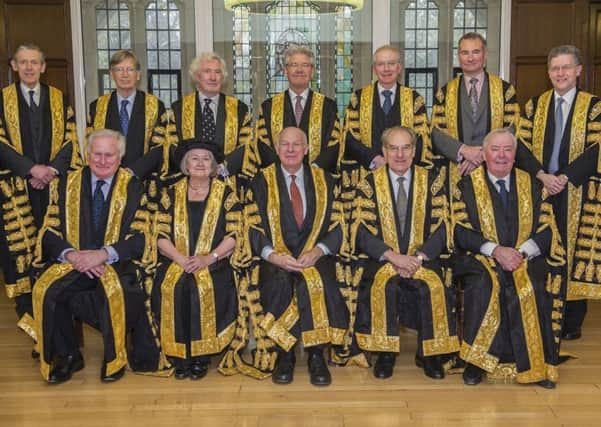Ian Swanson: Brexit process ruling isn't end of the matter


The majority ruling by the justices against the UK Government’s bid to bypass parliament and use the royal prerogative to invoke Article 50 reinforces basic democratic principles which used to be taken for granted.
In practical terms it probably makes little difference because it is clear that MPs will not vote to block the start of the Brexit process.
Advertisement
Hide AdAdvertisement
Hide AdBut the other part of the court’s verdict – on whether the Scottish Parliament and the UK’s other devolved legislatures should be consulted on triggering Article 50 – is more concerning, although it was also predicted, and has potentially serious and far-reaching implications. The justices agreed unanimously there was no legal obligation, under the devolution settlement, for the UK Government to consult Holyrood or Cardiff or Stormont.
They acknowledged the Sewel Convention – which says Westminster will not normally pass laws affecting devolved responsibilities without the approval of the devolved legislatures – had an important role in the operation of the UK constitution. But they said it was not up to the courts to police it or decide its scope.
Clearly, leaving the EU will affect all sorts of policy areas which are the responsibility of Holyrood rather than Westminster, but according to this ruling the Scottish Parliament need not be given any say on pulling out.
The court judgement seems to render pointless the decision to put the Sewel Convention on a statutory footing in the Scotland Act 2016.
Advertisement
Hide AdAdvertisement
Hide AdAnd it calls into question David Cameron’s claims that Holyrood was now “one of the most powerful devolved legislatures in the world”.
If the Supreme Court ruling had gone the other way and the consent of Holyrood and the other devolved legislatures was required before the UK could trigger Article 50, it would have been a major spanner in the works and would have made it impossible for Theresa May to meet her deadline of the end of March for beginning the process. But while the court has effectively washed its hands of the devolution side of the issue, the political argument will, of course, go on.
Nicola Sturgeon has made clear she will be bringing a motion on Article 50 to the Scottish Parliament anyway so MSPs can have their say, whether or not the UK Government listens.
And at Westminster, while Labour has said it will not seek to frustrate the Government’s Article 50 timetable, the SNP has announced plans to table up to 50 amendments in a bid to delay the process.
Advertisement
Hide AdAdvertisement
Hide AdMeanwhile, the Scottish Government’s proposals for Scotland to remain in the single market after Brexit will be on the agenda when leaders of the UK and devolved governments meet in Cardiff for a Joint Ministerial Committee on Monday.
And Ms Sturgeon has hinted that the court judgement has made a fresh independence referendum even more likely.
There is nothing in the justices’ ruling to stop the UK Government from consulting the devolved legislatures before triggering Article 50 – indeed, the judgement effectively said it was up to the politicians now.
It’s not too late for Mrs May to change her mind and adopt a more constructive approach to Scotland, recognising the 62-38 vote for Remain and being willing to accommodate the country’s different needs.